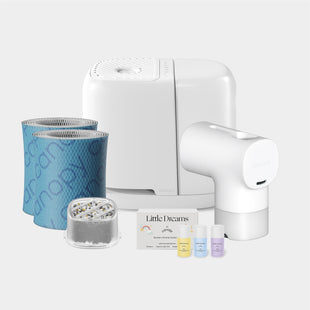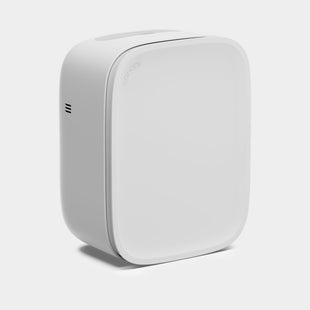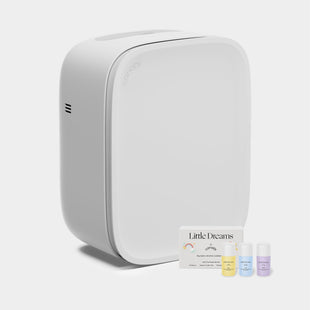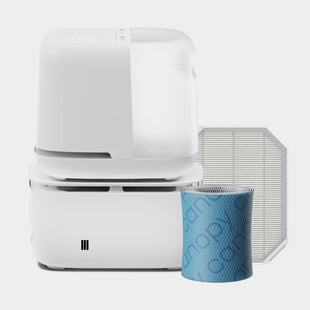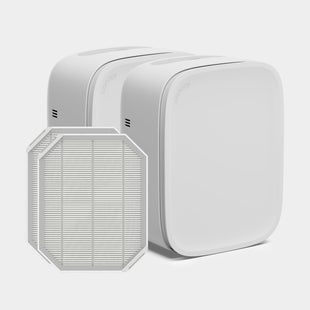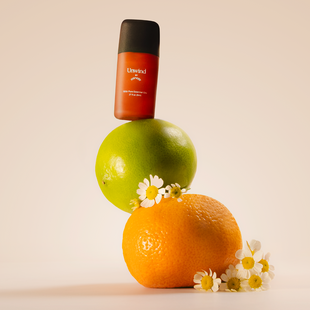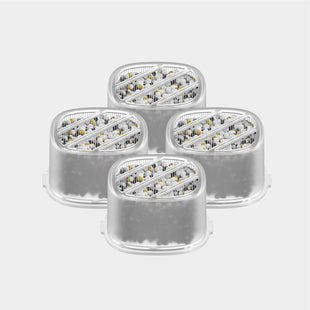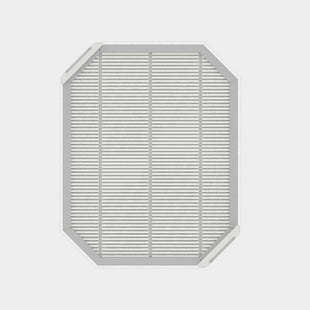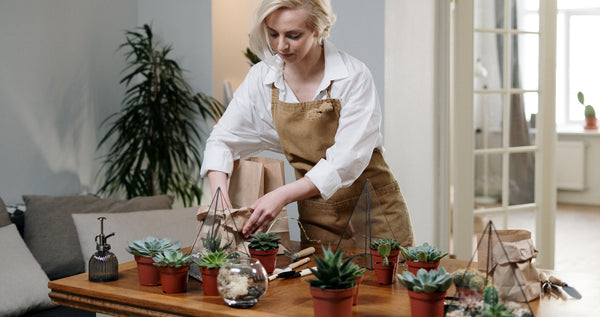You’ve likely heard that houseplants promote clean air and come with additional benefits, like boosting your mental clarity and reducing stress. Plus, who doesn’t love a pop of greenery on an end table or a bookshelf?
To get the most from your houseplants, you need to understand their unique care requirements. One popular variety that requires a little extra TLC to thrive is the air plant. These unique plants are attractive and generally low maintenance, but without the right temperature, humidity, and air circulation, they won’t flourish.
Here, we offer a simple guide to air plant care to help your greenery grow strong and healthy— and maybe even boost your well-being in the process.
What Is an Air Plant?
Air plants, or Tillandsia, encompass more than 600 different species of plants. Native to the Caribbean, South America, and the Southwest, these plants don’t require soil. Instead, they attach themselves to a platform or support of some kind (often trees in the wild) and get their nourishment from the atmosphere. They absorb water and nutrients through trichomes, which are tiny hair-like structures on the leaves.
This means an air plant habitat needs to be relatively warm and humid with plenty of air circulation. If any one of those elements is missing or out of balance, the air plant can suffer. Their leaves may turn brown or brittle and fall off. In the worst-case scenario, the plant could die.
The Ideal Air Plant Habitat

Because they don’t have soil, you may wonder if air plants like humidity. The short answer is yes—air plants prefer warm and humid conditions! Their ideal temperature is between 55 and 85 degrees, and the perfect air plant humidity is between 50% and 70%.
Many people opt to hang their air plants in the bathroom because the steam from hot showers produces the ideal conditions. However, using a humidifier in your home can also keep indoor humidity at the optimal level for plant health. The more moisture in the air, the more the air plants can absorb.
However, it’s important to monitor humidity. Allowing the air to become too saturated is not only uncomfortable for you, but it can also harm plants and cause rot.
Avoiding excess moisture is also why circulation is so critical to air plants. Without enough airflow, the plant won’t be able to absorb adequate nutrition. And if there’s too much water in the air, the plant can suffocate and rot.
Using a Humidifier to Create the Perfect Air Plant Habitat
Although your air plants may thrive without any additional moisture if you live in an area with above-average humidity, a humidifier can support the ideal conditions if you reside in a more arid region or during periods of low humidity, especially in the winter.
Ideally, any humidifier you use for plants should have a consistent mist feature to ensure the air stays properly hydrated, much like the plants’ natural habitat.
Canopy’s combination of UV light and paper filters removes impurities from the water, ensuring the mist our humidifiers distribute supports healthy houseplants. Clean mist is critical to air plants since they absorb nutrients from the atmosphere. Our humidifiers’ auto sensors also ensure the humidity levels are properly balanced, so you don’t have to worry about excess moisture that can saturate the plants.
For a humidifier that checks all the boxes, try the original Canopy humidifier for bedrooms and home offices up to 500 square feet or the Humidifier Plus for spaces up to 1,000 square feet. Your plants will thank you!









